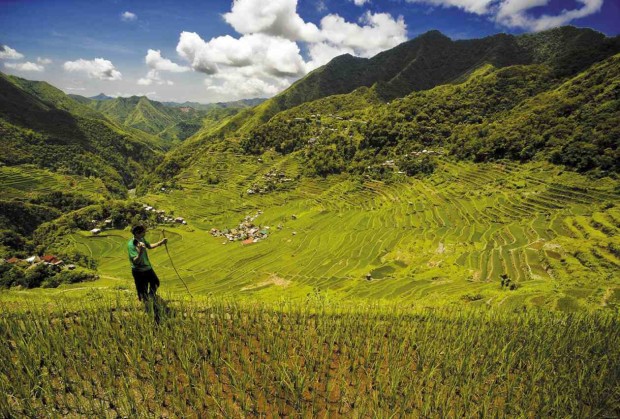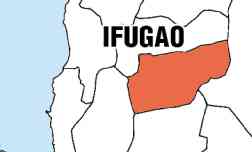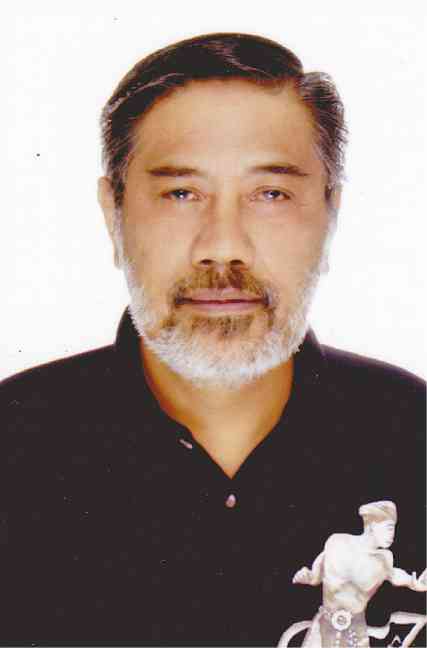Election 2016: Agenda of the Ifugao representative
The INQUIRER is coming out today with the 21st in its series on pressing people’s concerns that should be high on the agenda of candidates for representative, governor or mayor in the May 9 elections. The series should help voters in the provinces choose their leaders wisely. In line with our “ThINQ.Vote.” advocacy, we have asked candidates in certain provinces, cities and congressional districts to outline their concrete plans of action in dealing with specific issues in their areas.
Profile: Ifugao province
Ifugao province has put the Philippines on the world map because of its rice terraces, which have been acclaimed as the 8th Wonder of the World and which have been enshrined as World Heritage Sites.
It used to form part of the old Mountain Provinces when the country was ruled by the Americans. It officially became an independent province on June 18, 1966, when Republic Act No. 4695 divided the territory into Ifugao, Benguet, Kalinga-Apayao and Mountain Province.
Article continues after this advertisementIt was in Kiangan town in Ifugao where Japanese Imperial Army Gen. Tomoyuki Yamashita surrendered on Sept. 2, 1945. He signed his surrender papers at Camp John Hay in Baguio City on Sept. 3, 1945.
Article continues after this advertisementAside from the picture-perfect rice terraces, Ifugao is also known for its woodcarvers. A highlight of its annual Imbayah Festival in April is a race of G-string-wearing Ifugao men astride wooden scooters.
The third-class province has a population of 191,078 (2010 census) and a voting population of 101,354.
Sources: Philippine Statistics Authority and Ifugao archives
CONCERN 1: CULTURE AND HERITAGE
SHOULDERING THE WEIGHT OF A LEGACY. An anthropological study suggests that the Ifugao rice terraces, described as 2,000-year old artifacts by anthropologist Henry Otley Beyer, may be less than a millennium old. That has not diminished their stature as World Heritage Sites. However, no law has been designed to protect not only these cultural artifacts but also the Ifugao families who dwell around the terraces. One of the few protective laws is Presidential Decree No. 1501 issued in 1978 which punishes anyone who alters the original features of these national treasures. Recently the government relinquished the task of protecting the terraces to the Ifugao community, which must bear the weight of this national obligation without a proper budget or policy direction. What are your thoughts on this issue?
Teodoro Brawner Baguilat (Liberal Party)
While the chief responsibility for implementing the terraces conservation plan has been rightfully given to the Ifugao community and its local government, the state is obliged to help Ifugaos with proper resources. I filed House Bill No. 990 (the proposed Ifugao Rice Terraces Rehabilitation and Preservation Act), which seeks to allocate funds for the terraces. But activities should comply with a conservation plan approved and enforced by the local community.
The rice terraces are also protected by the national heritage law, which prescribes regulations for heritage sites.
Solomon Chungalao (Independent)
The preservation of the Ifugao rice terraces begins with the preservation and maintenance of their intricate irrigation systems, which have deteriorated over time. It may appear to be a simple problem [to some], but it has proven to be difficult to address. There should be an assessment of the P50 million channeled to the provincial government by the National Commission for Culture and the Arts for the preservation of the heritage sites in Ifugao, including funds to address the deterioration of the critical irrigation systems and the strengthening of the muyong system.
CONCERN 2: ENVIRONMENT
CLEAN ENERGY OR FOOD? Cordillera has been known as the water cradle of the North because its provinces, including Ifugao, are the headwaters of major river systems. Government’s active promotion of renewable energy projects has drawn hydropower investors to Ifugao, which is served by several micro-watersheds with three major river tributaries that exit to the Magat River. Water is also vital to the Ifugao rice terraces, which are inscribed by the Unesco as heritage sites because of their muyong system, “a forest conservation strategy, a watershed rehabilitation technique, a farming system or an assisted natural regeneration strategy” that preserves rice terrace farming. How would you strike a balance between Ifugao’s community requirements and national demand for clean energy in the management of Ifugao’s waterways?
Baguilat
We need to redefine how government deals with so-called “host communities” of vital infrastructure like power plants and irrigation facilities so the taxes serve as a mechanism for the “payment for ecosystem services (PES). I proposed to address this through House Bill No. 987, which redefines “host community” … [and] seeks to include the headwaters as part of what composes a host community so that upland villages that provide water to hydroelectric plants are automatically entitled to a share from the national wealth tax.
Chungalao
There is no conflict between the Ifugao community’s requirements and the national demand for clean energy in the management of the province’s waterways. This is because the muyong system serves to supply water for the terraces. The water supplying the terraces goes down to the rivers which supply Magat Dam. If there is anything which should be addressed properly, it is the strengthening and preservation of the muyong system.
CONCERN 3: HEALTH
MODERN MEDICINE. The construction of the Ifugao General Hospital in Lagawe town has been delayed since 2013 owing to questions about the structure’s stability. The people have been forced to go to other provinces and cities to avail themselves of health services. How will you resolve this problem involving Ifugao health care?
Baguilat
I did my job looking for funds for the hospital project and would continue to lobby for funds if the project is allowed to proceed.
Chungalao
My priority would be to return and increase the subsidies for PhilHealth [membership] for my province. The controversy on the Ifugao General Hospital is a matter that has to be resolved by provincial officials as it is a devolved health facility.
(Interviews by Kimberlie Quitasol)



